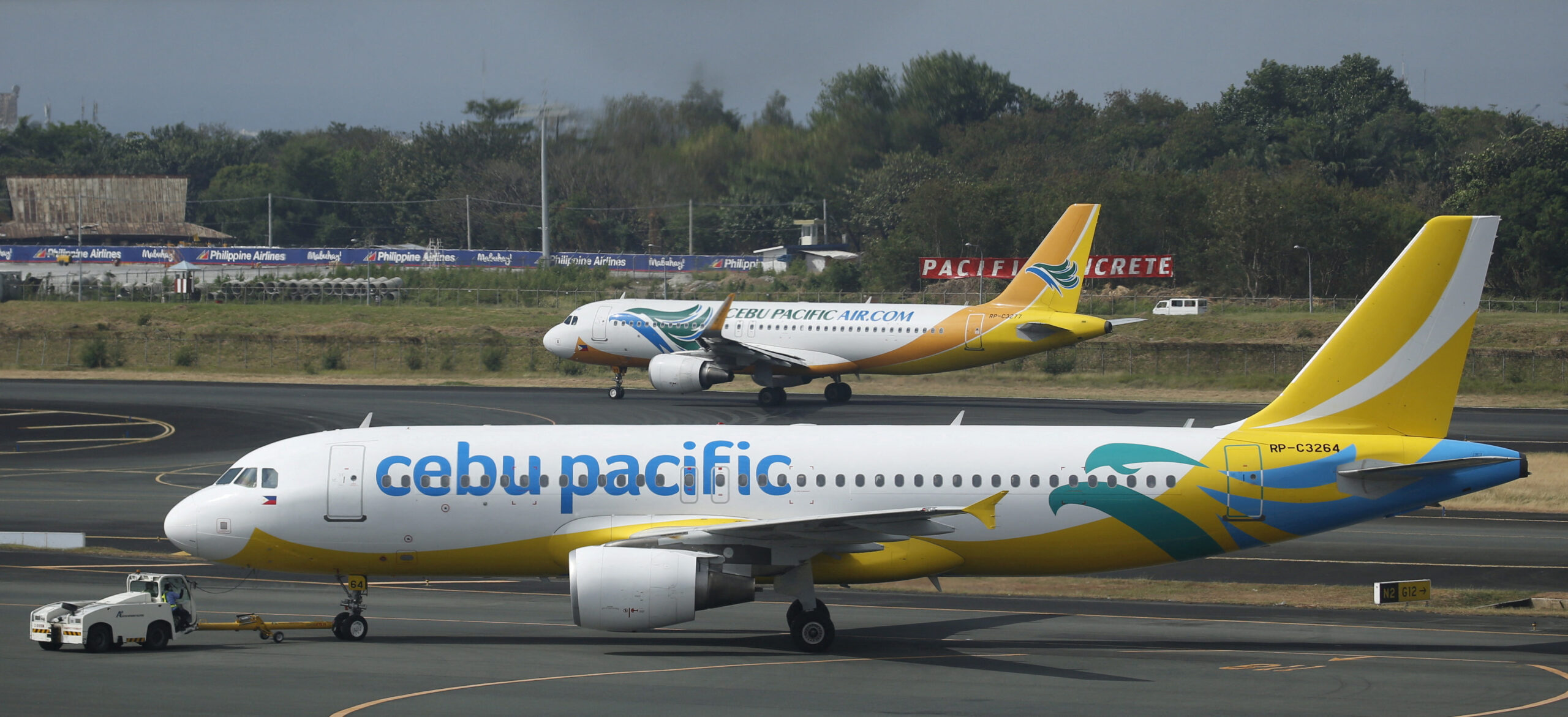MANILA, Philippines — Cebu Pacific flew back to profitability in 2023 with air travel continuing its momentum, erasing the losses it incurred at the height of the pandemic when aircraft were grounded due to strict lockdowns.
On Tuesday, the budget carrier reported that its net earnings and operating income respectively amounted to P7.9 billion and P8.6 billion last year, a turnaround from losses in 2022.
The top line figure, meanwhile, soared by 60 percent to P90.6 billion last year.
Passenger revenues surged by 78 percent to P62.5 billion after flying 20 million passengers, itself a 41-percent jump in volume.
READ: Cebu Pacific parent erases losses on bigger demand for travel
The number of flights the airline accommodated last year were up 30 percent to over 140,000.
Passenger load factor, meanwhile, rose by 9 percentage points to 84 percent. It measures the percentage of available seating capacity in an aircraft; a higher figure means higher occupancy or more tickets sold.
Operating expenses climbed by 20 percent to P82 billion because of higher fuel and fleet-related costs. The Gokongwei-led airline received 18 aircraft last year to beef up its fleet.
Stronger performance in 2024 seen
“Moving forward, we are optimistic that Cebu Pacific’s solid 2023 financial results will set the foundation for a stronger financial performance in 2024,” Cebu Pacific chief finance officer Mark Cezar said.
This year, Cebu Pacific is expecting the delivery of 14 aircraft as it targets to have a 92-jet fleet by the end of year.The budget carrier has allocated a P50-billion capital expenditure for mostly aircraft-related spending in 2024.
READ: Cebu Pacific to buy 100-150 jets worth $12B in biggest aircraft deal in PH history
With the aircraft deliveries and opening of more routes, the airline is eyeing to grow passenger capacity by 8 percent.
On top of this, Cebu Pacific is in the process of reviewing proposals from jet manufacturers Airbus and Boeing for its $12-billion aircraft order, targeting to pick one supplier by first half.
The aircraft order includes acquisition of 100 to 150 aircraft to service the anticipated rise in passenger volume as it expands the route network. The first batch of jets is expected to arrive as early as 2027 while the rest is slated for delivery until 2035. INQ
